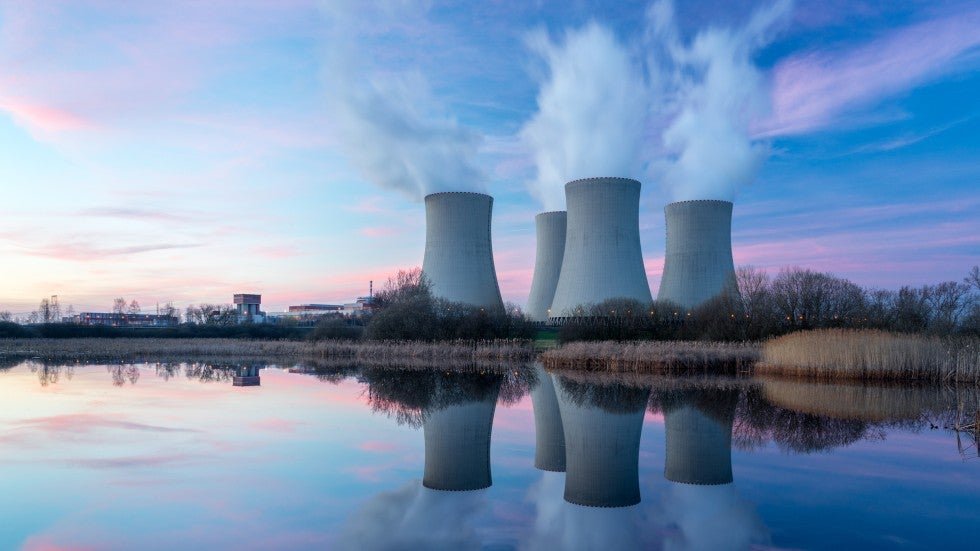Nuclear power has no business case and could make climate change worse | TheHill – The Hill
© 1998-2021 Nexstar Media Inc.
All Rights Reserved
The climate crisis is upon us, and we have no time to lose. We cannot afford a single false step. Even as the UN COP26 climate conference failed to put us on the necessary path to keep the world within 1.5 degrees Celsius of increased warming, there are still important choices to be made as countries roll out their latest climate plans.
That is why the United States, in its pursuit of carbon reductions, must not allow itself to be misled by the false promises of nuclear power, both its continued use and illusory new programs. Either would be a mistake.
The push to develop new nuclear is focused on so-called advanced reactors and Small Modular Reactors (SMRs), designs whose cost and safety uncertainties have not been satisfactorily addressed.
Yet, Congress is already looking to award just two “advanced” fast reactor designs — the Terrapower Natrium reactor and X-energy Xe-100 reactor — an extravagant $3.2 billion in subsidies, even though the former is a project of billionaires Bill Gates and Warren Buffett.
SMRs, typically less than one-third the size of a traditional nuclear power reactor, would need to be brought on in their hundreds if not thousands to achieve the advertised cost savings, a factor that has left designs on the drawing board for decades and has not attracted buyers. Even if these unproven designs work, such a program would never be achieved at a scale or in time to make a dent in carbon emissions.
This likely failure is reinforced by the recent experience of building new, traditional reactors. They consistently suffer massive delays and cost increases, which suggests commercializing new, untested reactor designs would not go faster or be any cheaper.
For example, another $1 billion was just added to the ever-escalating tab at the two Westinghouse reactors at Plant Vogtle in Georgia — underway since 2013, yet still unfinished — with costs ballooning to over $33 billion, and further delays likely pushing final completion into 2024 if ever.
The French-designed Evolutionary Power Reactor (EPR) is arguably a spectacular failure with massive cost-overruns, long delays and endless technical flaws. Most recently, at the now-operating Taishan 1 EPR in China, vibrations damaged fuel rods, forcing its shutdown. The problem could be linked to a design flaw also found in the four still unfinished EPRs in Europe, causing a French nuclear lab to raise doubts about their safety.
Recognizing these challenges, the U.S. nuclear industry is focusing most of its energy on keeping its current fleet of 93 reactors running, arguing that they are carbon-free. This is patently false — and not true of any man-made energy source, including renewables, as long as mining, transportation and manufacturing of these technologies are so reliant on fossil fuels.
However, the “zero-emission” mantra has been used to justify the inclusion of nuclear power plants in state and federal subsidies. If it had survived the machinations of Sen. Joe Manchin Joe ManchinBiden administration advances two large-scale solar projects in California Nuclear power has no business case and could make climate change worse On The Money — Biden’s plea: Don’t count out Build Back Better MORE (D-W.Va.), the promising Build Back Better Act may have still shot itself in the foot by including a massive $35 billion subsidy for already-operating nuclear plants in its “Zero-Emissions Nuclear Energy Production Credit.” This subsidy would have funneled billions of dollars to corporations that own nuclear power plants, nearly all of which will continue operating with or without such support.
Joe ManchinBiden administration advances two large-scale solar projects in California Nuclear power has no business case and could make climate change worse On The Money — Biden’s plea: Don’t count out Build Back Better MORE (D-W.Va.), the promising Build Back Better Act may have still shot itself in the foot by including a massive $35 billion subsidy for already-operating nuclear plants in its “Zero-Emissions Nuclear Energy Production Credit.” This subsidy would have funneled billions of dollars to corporations that own nuclear power plants, nearly all of which will continue operating with or without such support.
Subsidizing nuclear power siphons funds from real solutions, like renewables, just when these are needed most urgently, thereby making climate change worse.
Redirecting funds to old nuclear plants further misses the point that even were they carbon-free, this does not alone mean nuclear power is a good way to address the climate crisis because it ignores its two biggest climate drawbacks— time and cost.
As Stanford physicist Amory Lovins has pointed out, to address the climate crisis expeditiously and effectively, we must choose energy sources that can reduce the greatest amount of carbon emissions most quickly and at the least cost. This is where renewable energy, energy efficiency and conservation beat out nuclear power — as well as now gas and coal as well.
A recent Sussex University study showed that countries that have focused on nuclear power have not significantly reduced carbon emissions. Meanwhile, countries with strong renewable energy programs have.
Nuclear power has no business case and takes too long. That alone should rule it out as useful to climate protection, even before we look at other disqualifying factors such as the environmental justice and health impacts of long-lived lethal radioactive waste and potential meltdowns. Our future should not hinge on the nuclear industry’s false choice between climate chaos and cancer-causing pollution. We can and must do better.
Tim Judson is executive director of the Nuclear Information and Resource Service, a non-profit environmental organization founded in 1978 that works for a just and equitable transition to renewable energy and a nuclear-free, carbon-free world.
Linda Pentz Gunter is the international specialist at Beyond Nuclear, an anti-nuclear non-profit organization working for a world free from nuclear power and nuclear weapons.
View the discussion thread.
The Hill 1625 K Street, NW Suite 900 Washington DC 20006 | 202-628-8500 tel | 202-628-8503 fax
The contents of this site are © 1998 – 2021 Nexstar Media Inc. | All Rights Reserved.




